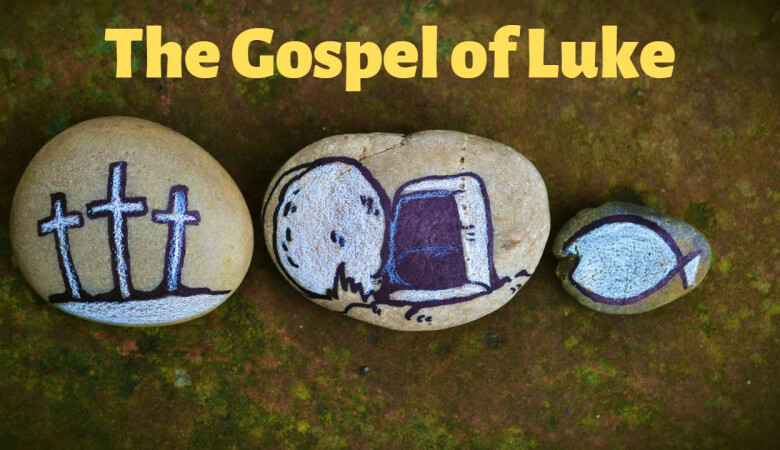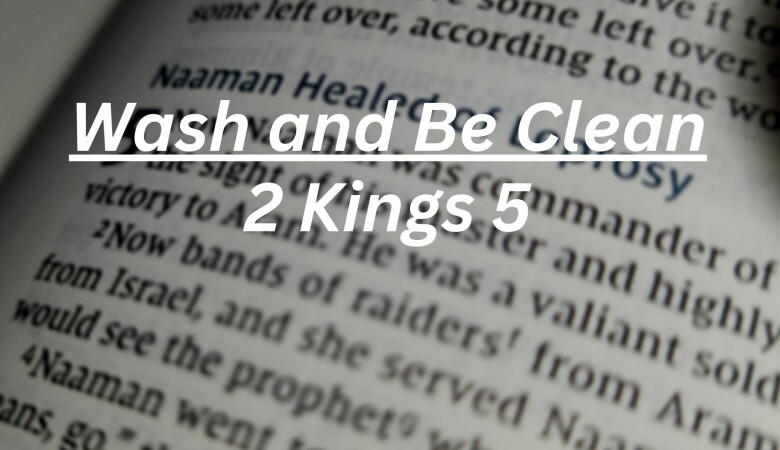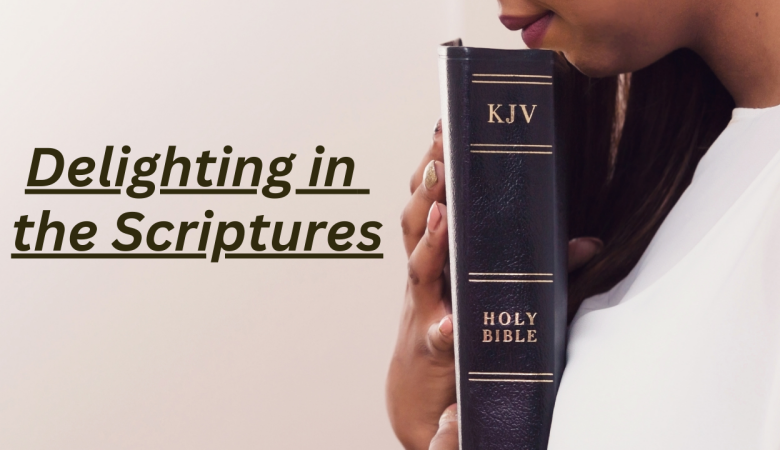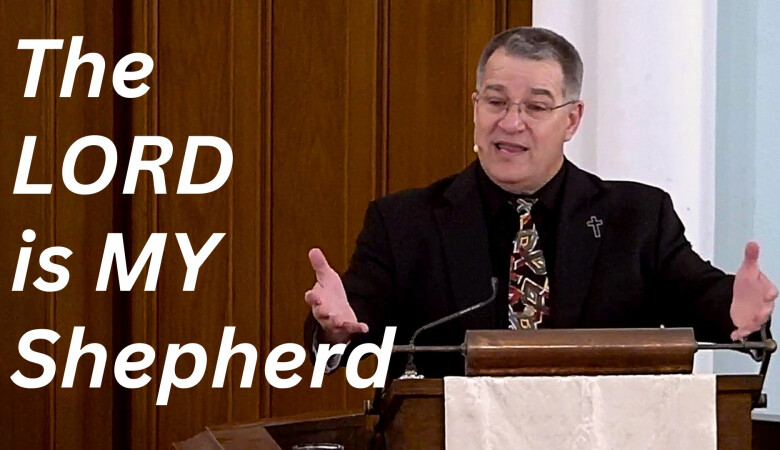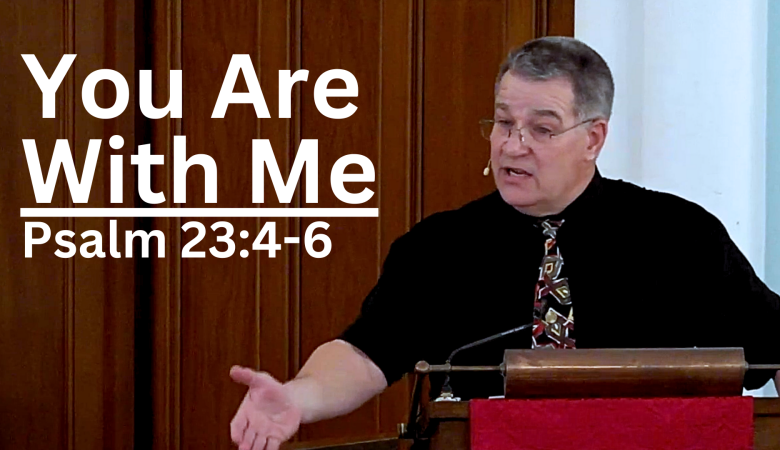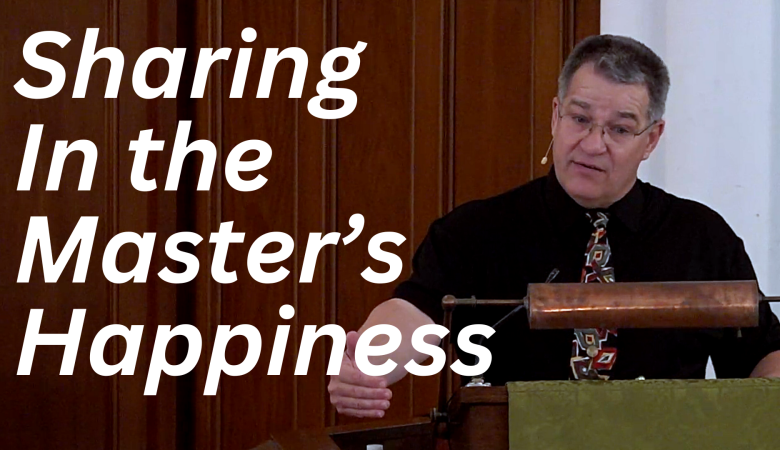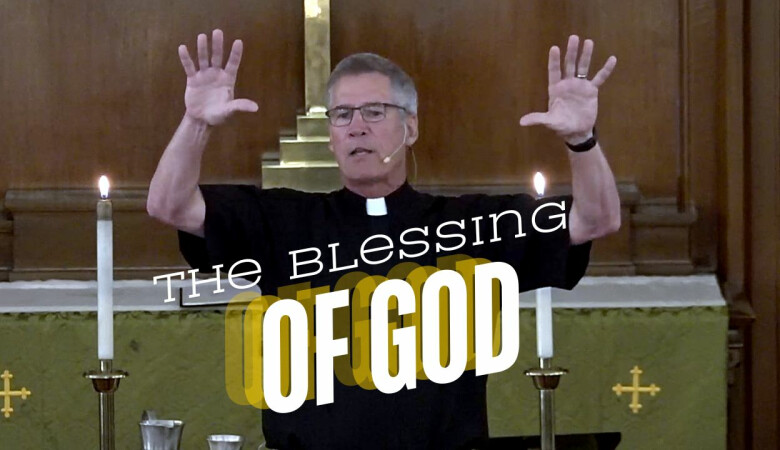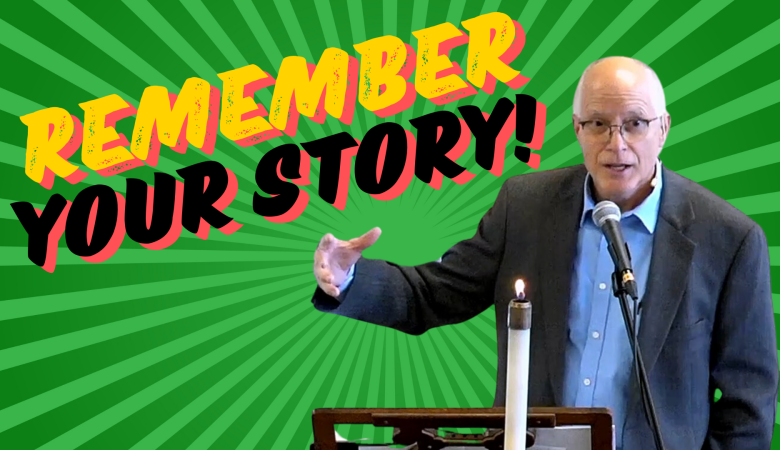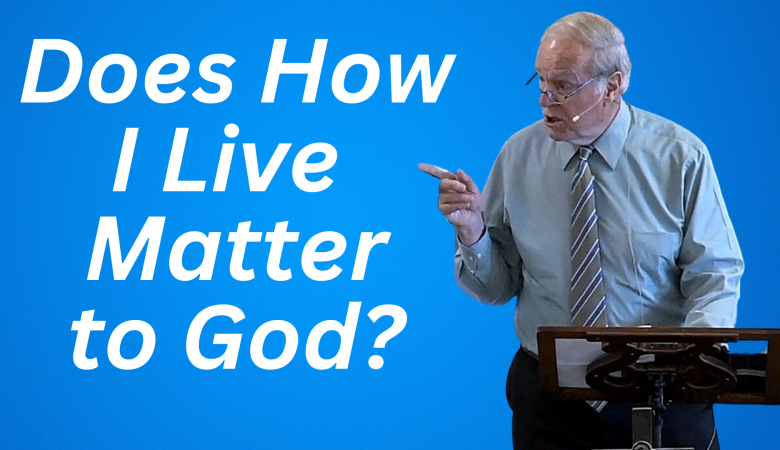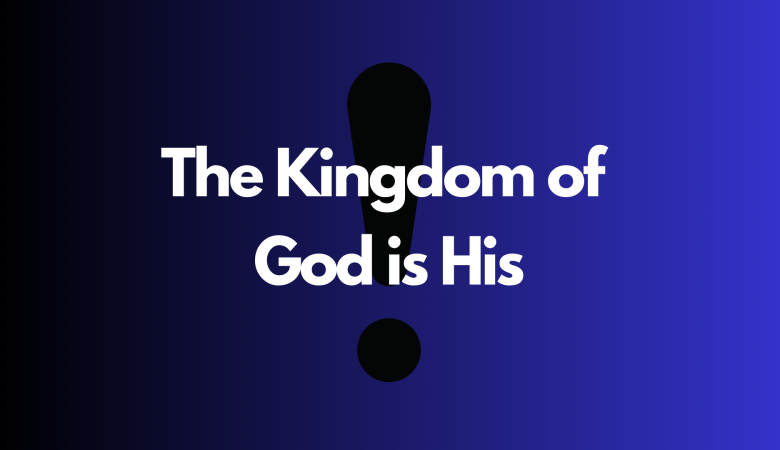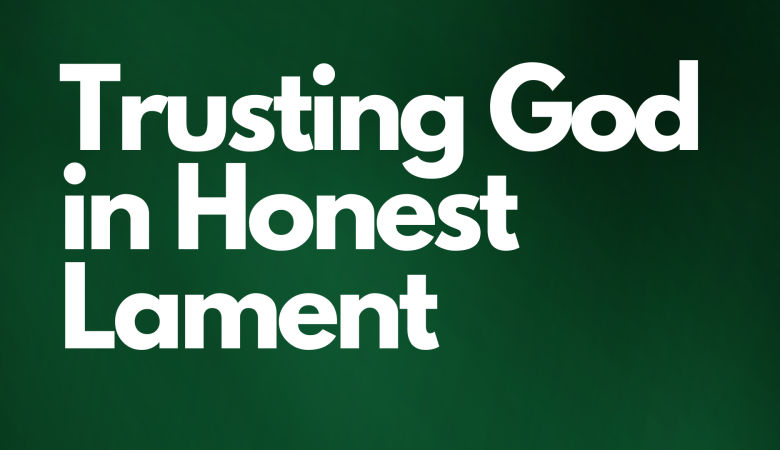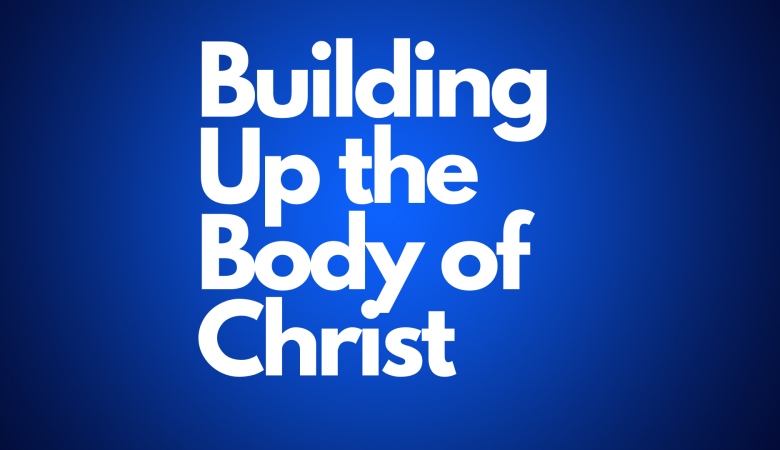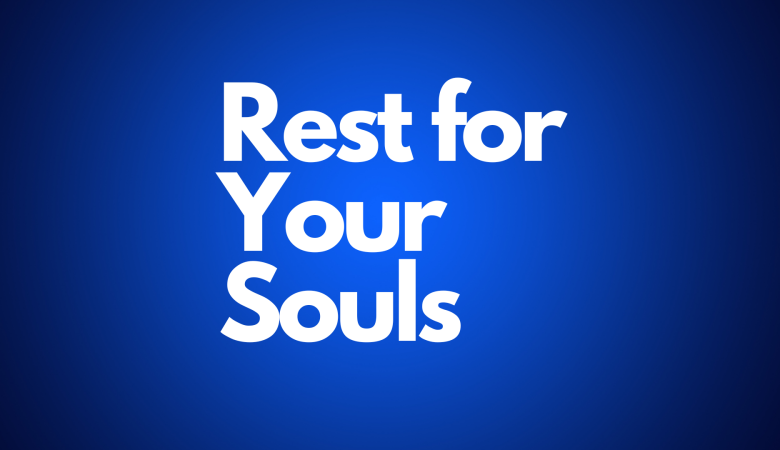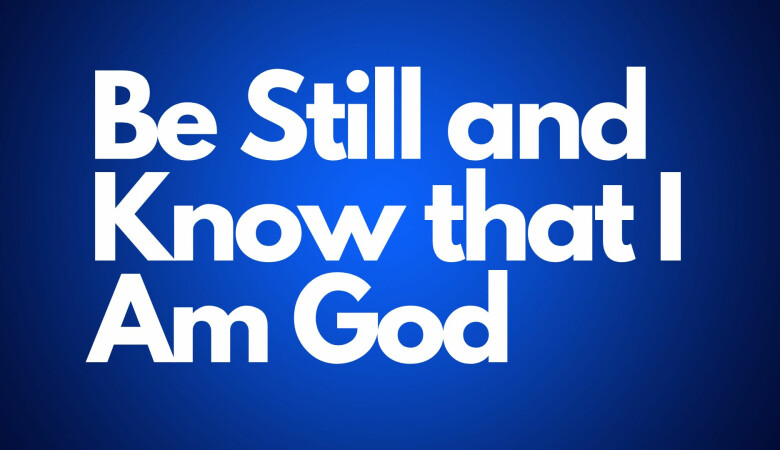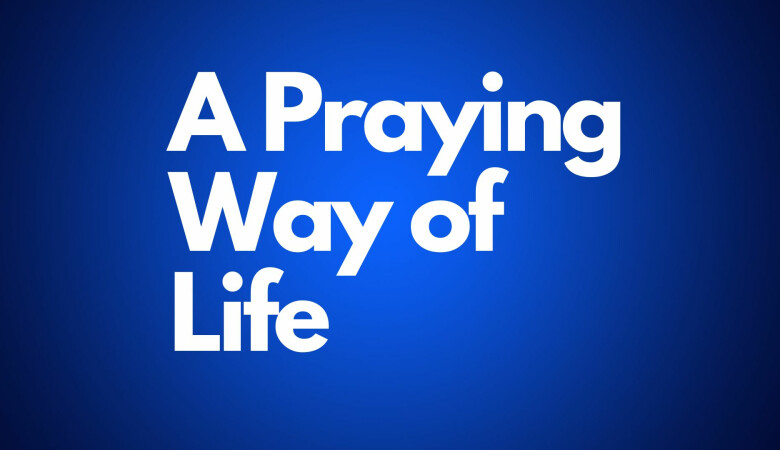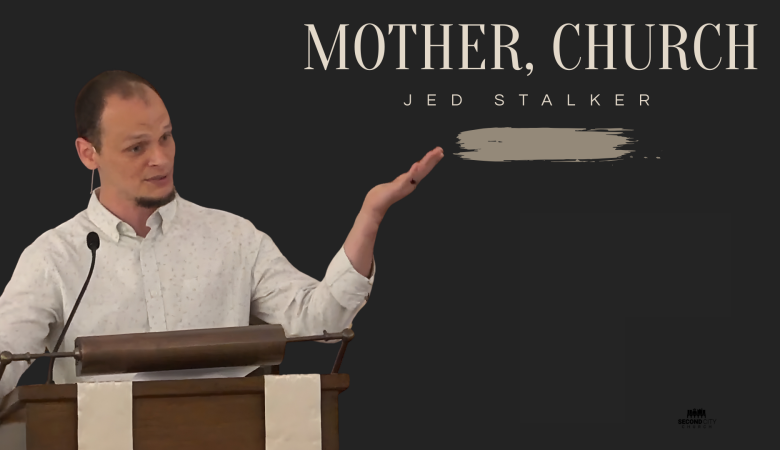Series: Guest Preachers
He Gives More Grace
August 18, 2024 | Kevin Sheahan
Passage: Psalms 86:1-17
ALL SERMONS IN SERIES
Summary
It is an undeniable characteristic of human personality to think of ourselves as good. Deep down we say to ourselves “I am alright – I’ve got this. The Bible is unflinching in its condemnation of our foolish high view of ourselves. But God does not leave us in despair. There is hope in the unmerited favor found only in Jesus.
Transcript
Now, the caricature of a sermon is that every sermon has to have three points. Three point sermon. How many of you raised in three point sermon land? This isn't a three point sermon today. This is a three finger sermon
today. So, changing things up a little bit. The first finger is going to be James, chapter four. The second finger is Ephesians two, and the third finger is Genesis three. Those three passages have already been read this morning. And basically, the sermon will walk through each of those things. They basically describe the same phenomenon, but from different vantage points, different perspectives. So this is a three finger sermon this morning. But before we jump in, let's take a word. Take a moment to say a word of prayer. O Lord, our God, we are grateful for this beautiful day. This is the Lord's day, the day that you have called your people out from the world to gather together to worship you rightly. Lord, we're grateful to be here to be gathered, to be called. And now, o Lord, as we open up your word, what a privilege it is and honor it is. May our hearts and our ears be attentive. Not what I have to say, but what you, the Holy Spirit, has to say to us this morning. May we receive it with glad hearts. May we be convicted, and may we be comforted. And may all of us together grow up together with Christ to become the body of Christ. We ask this in Jesus name. Amen. So, the first finger is James four, and he begins chapter four by saying, what causes quarrels and what causes fights among you. Is it not this that your passions are at war within you? You desire and do not have? So you murder, you covet and cannot obtain. So you fight and quarrel you do not have because you do not ask. You ask and do not receive because you ask wrongly, to spend it on your passions. Now, James and myself this morning are going to take a little bit of a risk. We're going to presume something about our audiences and the presumption is this is that all of you have something in your life that's a source of conflict. Now, I know I'm going way out on a limb here, and maybe I'm the only one, but there is some relationship in your life that is strained, that there are some desires that you have that are unfulfilled. There is some measure of discouragement or disappointment with life as it is. Now, I think that's true for every single one of us to some degree or another, that not everything is perfectly rosy in your job, in your family, in your friends, and even in your church. Now, Peter hasn't been telling me stories about you, so don't worry. But this is a general rule because every church and every person has problems, has conflict. James is a very practical book. When you walk through James, he speaks in nuts and bolts terms. He's simply saying, this is your life. This is what it looks like. He describes it, he explains it. He describes things and experiences and lifestyles and he says, look, you have quarrels and you have fights. Why? Because you have passions that are at war. Passions or pleasures that are at war, they don't all line up. And so you have fights. If you have children in your house, you know what that looks like. But even as adults, you're in a workplace. You know what that looks like. It says you desire and don't have. So you murder, you covet and cannot obtain. So you fight and quarrel. You want things and you don't have those things and so you get angry. Maybe not a literal murder, but Jesus says, if you got anger in your heart, you're a murderer. You want experiences, especially ones that other people are having. You want lifestyles that other people have and you don't have. And so you're upset. It says you ask and don't receive because you ask wrongly to spend it on your own passions. And then we go right back to where we started. It's their passions, it's your desires. All those pleasures that you're yearning for that are unmet. And so round and around we go. Our desires, our pleasures, our expectations dictate our quality of life. And when all those things are met, we're happy. But when they're not, we're upset and there's conflict. Now this was true 2000 years ago when James wrote this down, and it's true today. It's part of the human nature. We don't get what we want. People don't behave as we expect. I didn't get the promotion. I didn't get the job. I didn't make the team. My kid didn't make the team. That person didn't call me back. Team USA didn't win the gold medal. And so I'm upset. And so I complain and fight on social media and blame the refs and ignore that person at church and maybe on the side do a little light gossiping. And by the way, maybe you've heard, but it's also an election year, which just sort of brings everything up another level or two. So James says this, he says, this is the description of your life. It says you ask and don't receive because you ask wrongly. Why are you not giving me what I want, o Lord? Well, you ask wrongly to spend it on your own passions. Sometimes God doesn't give us what we ask because he knows that it would only puff us up and not build us up. That it would only serve ourselves and not serve others, or not serve his greater purposes. And in verse four, James says to his audience, he says, you adulterous people. Now, uh, that is not very nice language, especially in church. You adulterous people. Do you not know that friendship with the world is enmity with God? Therefore, whoever wishes to be a friend of the world makes himself an enemy of God. Our default is to try to be friends with the world. Now, uh, we were born into the world. We're born of the world and we want to be liked. We want to have community, and those are good things, to want to have community and to be liked. But instead of going about it God's way, we go about the world's way. We compromise, we settle. We don't count the cost of what it truly means to follow Jesus. We thought somehow it would be easier. We sometimes try to be in the world, which is a good thing, and wind up being of the world, which is a bad thing. We want success, not success in the way God often defines it, but in the way the world often defines it. We want power, cultural, political, money, influence. And we think that if we achieve just a little bit more and reach a certain level, then we'll be satisfied. If I could only get to here, then I'd be happy. And the problem is, once you get there, the goalposts move. Actually, I kind of want a little more. Someone once asked John Rockefeller, who's one of the wealthiest Americans in history. He said, how much money is enough? Mister Rockefeller, if you know the story. The classic answer of John Rockefeller was just a little bit more. It's always just a little bit more. Someone once asked Tom Brady, after he'd won three Super Bowls in four years, said, what's your favorite championship? The next one. There's always one more. Because the ways of the world never satisfy. And self indulgence and self actualization, they never satisfy. And so we get stuck in a cycle. We see it in our society at large, but we also see it in our own lives of disappointment and discontentment. Instead of taking that to the Lord, we take it out with conflict and quarrels and fights. We find ourselves going in the wrong direction and getting ourselves further and further lost. But don't worry, because it gets worse.
Finger number two. Ephesians, chapter two. Now, whereas James speaks to more of the experiential, lived reality of our lives, Ephesians takes the same idea, but gives us a theological perspective on it. And here's what Ephesians has to say. You were dead in the trespasses and sins in which you once walked, following the course of this world, following the prince of the power of the air and spirit that is now at work in the sons of disobedience, among whom we all once lived in the passions of our flesh, carrying out the desires of the body and the mind, and were by nature children of wrath, like the rest of mankind. James and Ephesians are describing very similar phenomena, but from different perspectives. Whereas James says, you have friendship with the world, Ephesians says you're following the course of this world. James says you don't have, because you're just going to spend it on your own passions. And Ephesians says, well, you carry out the desires of the body. James says, you can't get what you want, and so you murder. Ephesians says, you're dead in sin. You're children of wrath. And so Ephesians is. Torah is taking a step back from James, who's trying to describe our lived experience, and says, well, here's what's really going on behind the scenes, from a theological perspective or from God's perspective. It's like you watch, uh, a play at a theater from the audience, and then you watch it a second time, but the second time, you're backstage, and you get to see everything that's happening backstage, who's coming in and out, everything that the crew is doing, the pit is doing, when the curtain goes up, what's going on behind the curtain, when the curtain's closed, and you have a whole different perspective of what it takes for that play to be put on. And so Ephesians are stepping back and says, look, you're dead in sin. You're dead in your trespasses in sin. And that's what that entails. Being dead in sin means you're going to follow the course of the world. You're going to be friends with the world. It means you follow the spirit of disobedience instead of obedience. It means you have natural, fleshly desires instead of holy desires. That's what it means. And people who are dead in sin, it's more than just being frustrated and needing new coping techniques. We're dead. The greek word for dead means dead. You're dead, not alive. It's pretty straightforward. Sin has killed any ability we have to ever live a satisfying, flourishing, peaceful life, and we will continue to lead lives that are destined for disaster while we try to win these little battles in our life. Meanwhile, we're just bleeding out. But don't worry, because it gets even worse. Finger three, Genesis three. It's the same phenomenon. But now Genesis has taken us back to the very root, the very foundation of everything that Ephesians is talking about. And James is explaining, describing. And in Genesis three, starting in verse 16, we read that God said to the woman, I will surely multiply your pain and childbearing. In pain, you shall bring forth children. Your desire shall be for your husband, and he shall rule over you. And to Adam he said, because you have listened to the voice of your wife and have eaten of the tree of which I commanded you, you shall not eat of it. Curse is the ground, because of you in pain, you shall eat of it all the days of your life. Thorns and thistles it shall bring forth for you. You shall eat the plants of the field. By the sweat of your face you shall eat bread till you return to the ground, for out of it you were taken, for you are dust, and to dust you shall return. Now, the foundational directives given to Adam and Eve, and therefore to all of humanity, were to be fruitful and work the ground. To have children and work the ground. And what this curse does, having sinned now, both of those aspects are cursed. Childbearing will still come, but the labor will be painful for the woman. Moms, you can say amen at this point if you want. Working the earth will happen, but the labor will be painful for the man. This is what James is essentially getting at. This is how that plays out in real life thousands of years later, the experience of life on earth ever since Genesis three. Remember, the man in black said it right. He said to the princess bride, life is pain. Moreover, Adam and Eve were cast out from God's presence in verse 23, the Lord God sent him out from the garden of Eden to work the ground from which he was taken. He drove out the man. And at the east of the garden of Eden, he placed the cherubim and a flaming sword that turned every way to guard the way to the tree of life. You're not getting back into Eden, Adam, um, not with an angel yielding a flaming sword guarding the way, zero chance. And so they're cast out. It's a sign that their relationship with God was drastically altered and that their worship would forever be frustrated. So in Ephesians 212, it kind of gives a summary statement of the condition of mankind. It says, they're separated from God. They're alienated from each other, they're outcast from the covenant. They're, uh, without hope and without God. That's the picture the Bible paints of life without God. But don't worry, because it's about to get really, really good. Really good. Because before God ever spoke one word of curse to Adam and Eve, he spoke promise before verse 16, where the curse begins comes verse 15. God is cursing the serpent, his enemy, Satan. And in verse 15, he says this, I will put enmity between you and the woman and between your offspring and her offspring. He shall bruise your head, and you shall bruise his heel. Before God spoke a word of curse, he said, I want you to know that even though the news is about to get bad, there's hope for you, there's redemption for you, there's promise for you. There's a savior for you. And the words in Genesis are, ah, maybe a little bit cryptic. Certainly, Adam didn't fully understand what he meant. He shall bruise your head, you shall bruise his heel. We know now that he's speaking of Jesus, that God himself would come and crush the serpent, defeat the serpent, that there would be someone born from the woman, born even through that painful childbirth, who would be a savior, who would be a defeater of the enemy. And so from the very foundational level at, uh, Genesis, from the very beginning, God hardwired grace into the redemptive solution for humanity. It always had to be this way. Adam and Eve were never going to get back into Eden, and you and I were never going to find our way back to God, and we were never going to reconcile with each other in any meaningful way, not through trying harder, not through better techniques. The only solution to our conflict and our distress and our hostility with one another and our alienation from God is if God moves first and provides the solution himself. Because we are utterly cast out in debt in our sin without him. Before there was the curse, there was the promise to break the curse.
Let's go back to our second finger in ephesians two, and we'll keep reading. After the first three verses of ephesians two, he talks about how awful our condition is, how dead we are, how frustrated we are. We get verse four. And it says, but however, in spite of all of that, verse four. But God, God being rich in mercy because of the great love with which he loved us, even when we were dead, God made us alive. You can't have a more radical shift than death to life. You can be sick and be made well. Nothing is more radical than being dead and then being alive. But God, out of his mercy and love for us even when we were dead, makes us alive together with Christ. And how does he do it? Verse five. He does it by grace. He m chooses to do it. And it's by grace that he saves us. And it's by grace. Verse six. That he raised us. And it's by grace that he seated us with him in the heavenly places. In Christ Jesus, we who were once cast out of the garden have now been brought and seated with Christ in the heavenly places. We who were once at enmity with God are now at enmity with his enemy and are friends with God. We who were once hostile towards one another, we are now reconciled by the cross. If you go down the page to, uh, Ephesians 213, but now in Christ Jesus, you who were once far off have been brought near again, hear the contrast. You were once far off, you've been brought near by the blood of Christ. For he himself is our peace, who has made us both one, and has broken down in his flesh the dividing wall of hostility by abolishing the law of commandments expressed in ordinances that he might create in himself one new man in place of the two, so making peace, and might reconcile us both to God in one body through the cross, thereby killing hostility. Far off to brought near hostility to peace, two entities brought together into one. It was always about God reaching down by his grace into sinful humanity and restoring our dead hearts to life through the work of Jesus Christ on the cross, that he assumes our death. And then he gives us his life. And all the hostility and the conflict and the anger and all of the sin he bears to the cross bears the fullness of its wages, which is death. And now we can be forgiven, we can have life, and now we can live lives that bear the fruit of forgiveness.
And so let's go all the way back to our first finger, back to James four, where we started. And James has described these fights, these quarrels, these passions, this. All this stuff that's going on. And then in verse six, just like in Ephesians two. But however, in spite of everything that's happened before that I just described. But he, that is God gives more grace. He gives more grace and that's it. James does not give a long theological explanation of grace. James is practical. You know, audience of James, you know what grace is? It's simple. It's like a reminder to all of them. It's like he walks into a room and there's just this cacophony of noise, of everyone fighting and everyone yelling and everyone screaming. And James comes in and he says, guys, grace. And it's kind of a mic drop moment. It's as if his audience just goes, oh, yeah, what are we doing here? What are we fighting about? This is silly. Grace, guys. He gives more grace. More than what? More than enough grace to cover all of the conflict and quarrels and fights among you, that's for sure. More than enough grace to quench the fires of your anger. More than enough grace to turn you from enemies with God to friends with Goddesse. More than enough grace to reconcile with your neighbor and with certainly your brothers and sisters in Christ. He gives more grace. Well, yeah, but what about grace? But he said grace. He gives more grace. Then James goes right into application, therefore, because of the grace, the more grace, the overwhelming grace that you've received, therefore. And then James gets into all these different commands and directives. I'm not going to go through all of them, but there's eight or ten of them just in like four verses, just kind of quick hitting commands. Do this, do this, do this, do this. But just look at verses six and ten. Therefore, it says, God opposes the proud, but gives grace to the humble. And then verse ten, humble yourselves before the Lord and he will exalt you. This little paragraph here is bookended on either side by humility. By humility. Now, humility is one of those words that gets confused in our day. What does that mean? It does not mean simply that, oh, I stink. I'm terrible. Oh, look how humble he is. No, humility, at least biblically speaking, means thinking rightly of yourself, thinking rightly of your place and position. Jesus was humble. He also claimed to be goddesse. That's humble because it's correct. It's exactly who he is. We can be humble by just acknowledging the fullness of our sinfulness, but also the fullness of his promises and our blessings in Christ that keeps us humble, keeps us centered and accurate, understanding who we are, our place and position in Christ. So the reminders of the gospel of grace makes us humble because we acknowledge that we've received far more grace than we could ever dispense. And so the humble in James four, six and James 410, it's the humble who are given grace, and it's the humble who are exalted. You think of the beatitudes in Matthew five, blessed are thee. And there's a whole list of them there. They're all connected somehow to humility and then the incredible blessings that are attached to them. Most of these directives in James four are some aspect of humility. They all kind of come back to humility. Somehow or another. If we sneak ahead a little bit to verses eleven and twelve, there's only one lawgiver and judge. And who are you to judge your neighbor? It's keeping us humble that we recognize God's law, God's judgment, God's justice, and allows us to humbly say, we are not God. We are not the ultimate judges. We're not the ultimate lawgivers. In James 413 come now, you who say, today or tomorrow we will go into such and such a town and spend a year there and trade and make a profit. You don't know what tomorrow will bring. You can't predict the future. I remember reading this in 2020 and thinking, we had no idea what 2020 was going to bring. I was way off. This keeps us humble under God's providence, acknowledging he knows what's coming. We really, frankly, have no idea what's coming. The point is this, is that the more that we draw our gaze upon the Lord and we look upon his holiness and his grace and his righteousness and his providence and his justice, the more we will see our earthly conflicts, rightly, for being the relatively petty squabbles that they are. And the more that we recognize our own desperate and tremendous need for grace, the more we will be able to humbly dispense it to others. The more we recognize our own need for grace, the more we face criticism, knowing that we're actually a lot worse than our accusers think we are. We can be okay not having stuff, knowing that we already have far more than we deserve. We can be okay letting arguments go, knowing that we are prone to all sorts of error. We're often led astray by ungodly passions, and God's going to set things right anyway, in his good time and so understanding God's grace, that he gives more grace, more than enough grace, more than sufficient grace, overwhelming grace can allow us to do. Just as James four commands us to be humble, to humble ourselves before the Lord, knowing he will take care of it.
I want to close by looking at psalm 86, which we read earlier. This is the psalm. This is the prayer of a humble heart. It's an antidote to sin and to conflict. In psalm 86, David prays this. He says, incline your ear, O Lord, and answer me. For I am poor and needy. Preserve my life, for I am godly. Save your servant who trusts in you. You are my God. Be gracious to me, O Lord, for to you do I cry all the day, gladden the soul of your servant. For to you, O Lord, do I lift up my soul. For you, O Lord, are good and forgiving, abounding, uh, in steadfast love to all who call upon you. Give ear, o lord, to my prayer. Listen to my plea for grace in the day of my trouble. I call upon you, for you. Answer me. This is a humble plea for help. David recognizes that help does not come from his own strength, not from his own cleverness. Every line of this is dependent upon goddesse. And then in verse eight, he says, there is none like you among the gods, O Lord, nor are there any works like yours. There are none like you among the gods. What is he referencing there? He's just spent seven verses pleading with God and says, God, there's none like you because there's no other God that has our God's character. That has Yahweh's character, the Lord's character. There's no other God who forgives sin. There's no other God that gives himself up to sin. There's no other God that comes near to his people when they call. No other God does this. Only the one true God, the Lord. Other religious gods are not interested. They don't get involved. You either make the grade or you're out. All the american lowercase "g" gods that we serve, big tech, big pharma, big government, big Eva, big ten, big whatever. None of them care about you. None of them care about me. Only our God cares about us. Jesus does. He died for you to prove just how much he cares about you. But David is calling upon God's character. I'm just going to read verse 15 of psalm 86. This is the classic definition of God's character. But you, O Lord, are a goddess, merciful and gracious, slow to anger and abounding in steadfast love and faithfulness. And, oh, that God's people would reflect God's character. That we might be peacemakers to a world that so desperately needs it. You, O Lord, are a, uh, God, merciful and gracious, slow to anger and abounding in steadfast love and faithfulness. Amen. Let's pray together. O Lord, our God, we thank you, we praise you. That, uh, you are indeed a God who is merciful, who is gracious, who is slow to anger, who abounds in love and faithfulness. We are grateful, O Lord, that we have fallen upon your favorite. By no merit of our own. Simply by your grace, you have called us and saved us and raised us. And will seat us with you in the heavenly places. Lord, as we live out our lives, uh, may your grace be so overwhelming and such a theme of our life. That all of the desires and the conflict and the quarrels fade away, that they lessen as we gaze upon you. Gaze upon your greatness and your holiness. We thank you, O Lord, that you have brought us close to yourself. That we might know you and love you and serve you this day. We praise you and we pray these all pray all these things in Jesus name. Amen.
Series Information
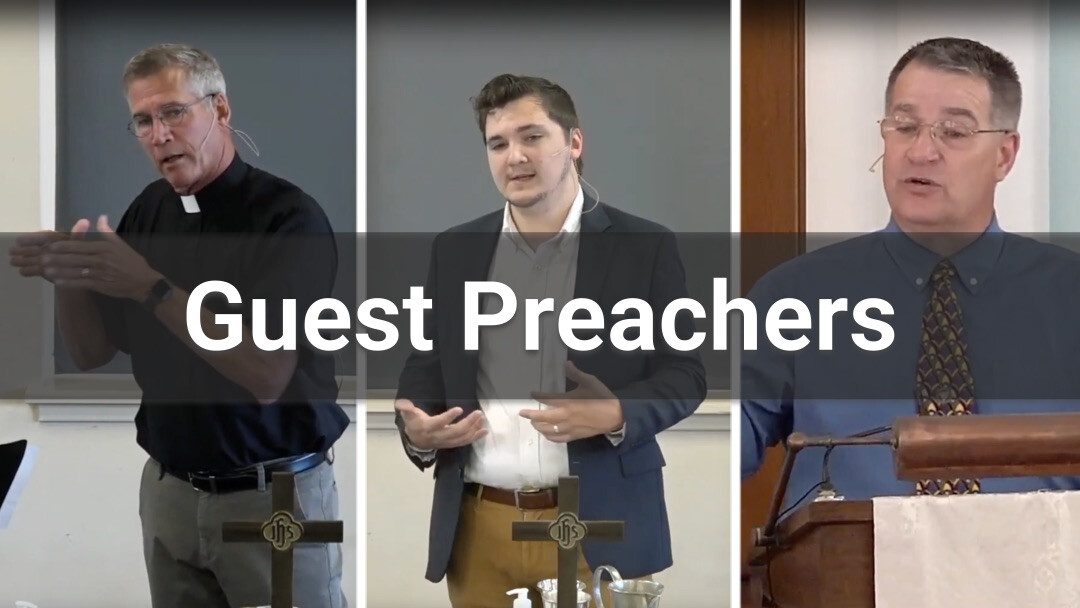
When Pastor Peter is away Second City Church is blessed to hear other men God has gifted to preach.

